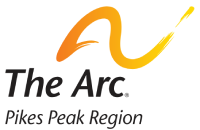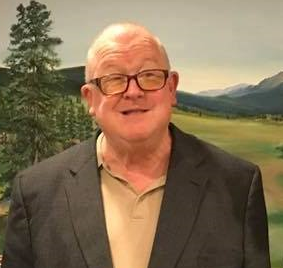By: Bill Baxter, self-advocate
The Arc Pikes Peak Region was recently honored to publish Self-Advocate Bill Baxter’s blog, “Realities of Being a Self Advocate: Part I,” “Realities of Being a Self-Advocate: Part 2,” and “Realities of Being a Self-Advocate: Part 3.” We are pleased to continue this series in part 4, below. To learn more about or get involved with The Arc Pikes Peak Region’s group of self-advocates, Include USA, click here.
*The views expressed in this blog are not endorsed by The Arc Pikes Peak Region and are the perspective of the author.
In my past three articles on the Realities of Being a Self-Advocate, written in 2017, I have talked about the concept that people who have an intellectual and/or developmental disability or other disabilities (I/DD) have more limitations than people who don’t have disabilities. However, I also stated that this doesn’t mean people with I/DD can’t excel in anything. I pointed out that like every human being, each person with I/DD or other disabilities is “unique.” Some people with I/DD make it all the way through college; a lot of people with disabilities do not. Few people with disabilities are good musicians, whereas a lot of others with disabilities are not. Some have good relationships with the opposite sex, whereas a lot of people with disabilities (such as me) do not. Society often tries to put everyone with I/DD and other disabilities into a box. I’ve included a few example below:
- People with I/DD and other disabilities should be segregated and never mainstreamed. Again, each person is unique. Some people with disabilities do well being mainstreamed.
- People with I/DD and other disabilities are not “college material” and should not be permitted to attend college. I made it through college, and there have been others who have done likewise.
- People with I/DD and other disabilities can never excel in sports, music, public speaking or any of the performing arts. I sang in a chorale for three years, have been in an opera, and I use to sing the National Anthem at professional sporting events from 2006-2011. There are others with I/DD with special gifts in these areas. A lot of self-advocates are quite active in public speaking, and they are very good at it. I have been a member of Toastmasters for over 27 years.
People with disabilities do excel in a lot of these areas mentioned above, yet they are quite often discouraged by others who don’t have disabilities. People with disabilities often face adversity when relating to people who don’t have disabilities. This is especially true when people with disabilities have been mainstreamed.
Self-Advocates Help People with I/DD Overcome Adversity
People with I/DD and other disabilities are considered a minority group in society. They make up the number one minority group when it comes to being recipients of social prejudice. The prejudice stems from people trying to put this minority group into a box. This is yet another reason that self-advocates are needed in society. In a lot of ways, people with disabilities are like everyone else in that they have certain unique gifts and passions they like to pursue, and they should be allowed to pursue these — especially if they have excelled in these ventures in the past. I have excelled in singing and in Toastmasters/Public Speaking, which are two of my biggest passions. Even so, I sometimes still face adversity.
People with disabilities sometimes have interests and passions they don’t excel at, yet they still want to pursue them. Naturally, there would be a lot of adversity they would have to deal with. Should people with disabilities be permitted to pursue activities and passions they don’t excel in, where the performance of these activities is mediocre at best? My answer to that question is that as long as there is no immediate danger to the person or life-threatening situation involved, YES!
High School Sports: Pursuing My Passions
I was born a forceps baby with some damage to my central nervous system. One thing my mother would never permit me to do was to go out for football, because of the immediate dangers involved from being hit or tackled. I did get to serve as a Varsity Manager on the Varsity Football Squad at Thomas S. Wootton High School in Rockville, Maryland, during the fall of 1973. In 1970, I began to pursue a passion and interest in something I was never much good at, and that was playing basketball. I played on a church basketball team at First Presbyterian Church in Fair Oaks in 1970 and 1971.
I was in the ninth grade and was playing with kids who were college-age. I was not very good, and I got very little playing time. I only scored eight points during the entire season in the church basketball league. My only accomplishment playing on that team was that I never quit, and I didn’t give up. The team at Fair Oaks Presbyterian won the league championship. At the end of the season when each of the players got championship trophies, I received a special Basketball Trophy for being the “Most Courageous Player.”
Later that summer, the family moved to the Washington DC Area on the East Coast. I had developed a strong passion for excelling in being a High School Basketball Player. I had learned to shoot baskets very well, but later I would find out that there was more to being a high school basketball player than being a dead shot with a basketball – MUCH MORE! I began my junior year of high school, and I was enrolled in special education, as I had some learning disabilities. I decided to take the plunge and try out for the varsity of the junior varsity basketball team. For me, the try-outs were a flop. I didn’t impress anyone; in fact, many athletes at Wootton High resented me for even trying. Being a star basketball player or even an average high school player just wasn’t part of the Almighty’s plan for my life. Later, I came to realize that.
One Door Closes, Another Opens: Finding Success
Does this mean that people should not pursue activities they don’t excel in? True, I didn’t succeed as a high school basketball player, but quite often, when one door closes in one’s life, a better door opens in its place – which generates more success. A couple of the faculty members of the high school saw how much I desired to be part of the life of that school despite by disabilities. One of them was a teacher in the English Department, Ron B., who was also the wrestling coach. He was looking for a varsity equipment manager for the wrestling team, and I took great pride in being a team manager. I had found something that I did excel in.
The varsity football and track squad coach, Jack Loudenberg, saw the work I was doing for the varsity and j.v. wrestling teams, and he liked what I did. In the spring of 1973, he asked me to be the team manager for the track squad and later for the varsity football team at the beginning of my senior year. I accepted both times and continued to be successful. A lot of the coaches in the Athletic Department grew to like me more and more, and a lot of the high school athletes seeing this grew to like me and befriend me as well, including the ones who reviled me for trying to become a high school basketball player. I acquired high school popularity in the fall of 1973. Thomas S. Wootton High School had only been in existence for three to four years when I attended there and became a varsity team manager. I became the first varsity team manager in the history of that school to become a varsity three-letterman. That went over big with the school, and my life was changed forever. This has had a positive impact on my life to this day. I am 63 years old now and happy with the way my life has turned out.
I had finally given up the notion of becoming a basketball star. But in pursuing that passion in the fall of 1973, it led to something much better and brought great success in my life. Serving as a team manager enabled me to be myself and appreciate myself for who I really am. So yes, people with I/DD and other disabilities should be allowed to pursue their passions and goals; because, if they aren’t successful, quite often another door will open up where they will be successful. They will also learn valuable lessons which will have a positive impact on their lives.
May all of you have a wonderful New Year 2018, and keep pursuing your passions and goals in your life. Don’t let prejudice and adversities detour you from your goals. Let us continue to advocate against these adversities throughout the year 2018!
Subscribe To Our Newsletter and SMS Reminders
The best way to ensure that you receive our newsletter, our event invitations, SMS reminders and other important information is to become a member of The Arc of the Pikes Peak Region.
The best way to ensure that you receive our newsletter, our event invitations, and other important information is to become a member of The Arc of the Pikes Peak Region.


